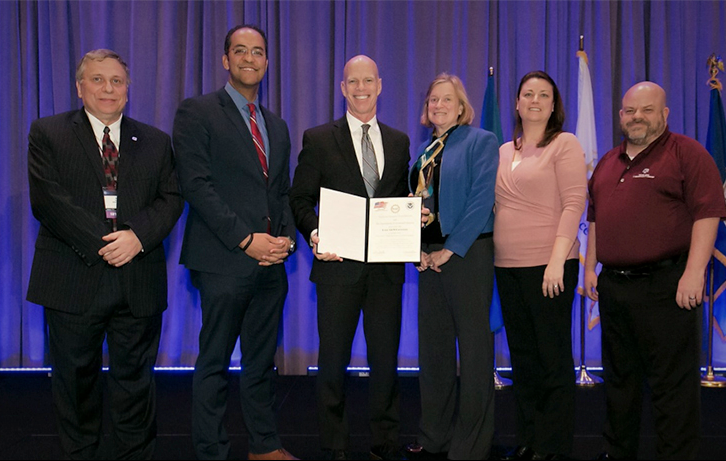
News about cybersecurity is rarely good. Whether it's individuals, hacker groups or even foreign adversaries attempting to interfere with the democratic process, it can feel like the United States is struggling to keep up on the cybersecurity front.
But the news isn't all bad. Instead of standing idly by, Texas A&M has been quickly responding to the call.
With the recently awarded $4.4 million grant from the National Science Foundation CyberCorps Scholarships for Service (SFS) program, the Texas A&M Cybersecurity Center will administer the Cyber Leader-Scholars Program in partnership with Houston Community College.
The program will combine the academic expertise at both institutions to develop and mentor a group of students over a five-year period. In return for their scholarships, which include generous stipends, the students agree to work for a government agency for a period equal to the length of the scholarship.
Dr. Daniel "Rags" Ragsdale, director of the Texas A&M Cybersecurity Center, said "Our Cyber Leader-Scholars Program, which includes the SFS Program, leverages the strong and longstanding commitment of A&M leaders, faculty and students to addressing threats to the safety and security of Texans, U.S. Residents and other members of the global community. It also takes advantage of the decades-long focus the university has directed at the ever-evolving challenges of cybersecurity.
"We are fortunate to have highly motivated partners from Houston Community College (HCC), who will administer the program on their campus," Ragsdale added.
HCC is one of the six two-year institutions participating in the Texas A&M-Chevron Engineering Academies program, the first-ever engineering transition program of its kind in the United States.
This program is the most recent development in Texas A&M's ongoing effort to provide both groundbreaking research and a skilled workforce in cybersecurity.
Last year, following former U.S. Undersecretary of Defense for Intelligence Dr. Stephen Cambone's appointment to lead The Texas A&M University System's cybersecurity initiatives, the Chronicle for Higher Education profiled Texas A&M's efforts to develop a robust cybersecurity curriculum. Recently, MilitaryTimes.com ranked Texas A&M as one of the top 10 schools in the country for cybersecurity.
The work being done by the Texas A&M Cybersecurity Center and A&M faculty to meet the growing demand for cybersecurity expertise is extraordinary," Cambone said. "The increasing number of students enrolling in an increasing number of cybersecurity classes is a testament to their commitment addressing a set of issues that are both complex and in urgent need of resolution."
In terms of impact, Texas A&M faculty have been awarded more than $18 million in grants for cybersecurity research and education in the past three years, and that figure continues to grow. For example, Texas A&M scholars, with support from the National Science Foundation, the Department of Energy and the Defense Advanced Projects Agency, are engaged in several high-impact research projects that address cyber vulnerabilities in a wide array of critical infrastructure sectors.
According to Ragsdale the vision for the Cybersecurity Center is to ensure that Texas A&M, in partnership with other forward-looking institutions, would move to the forefront of cybersecurity research and education.
"With the progress we have seen in just the past two years, and with the addition to our faculty and staff of Dr. Cambone, and a number of distinguished cybersecurity faculty, it is safe to say that A&M is well on its ways to realizing this auspicious vision," Ragsdale said.
Co-principal investigators for the National Science Foundation grant include Texas A&M Cybersecurity Center assistant directors Paula deWitte and Dr. Robert Jones, and department of computer science professors Dr. Dilma Da Silva and Dr. Guofei Gu.